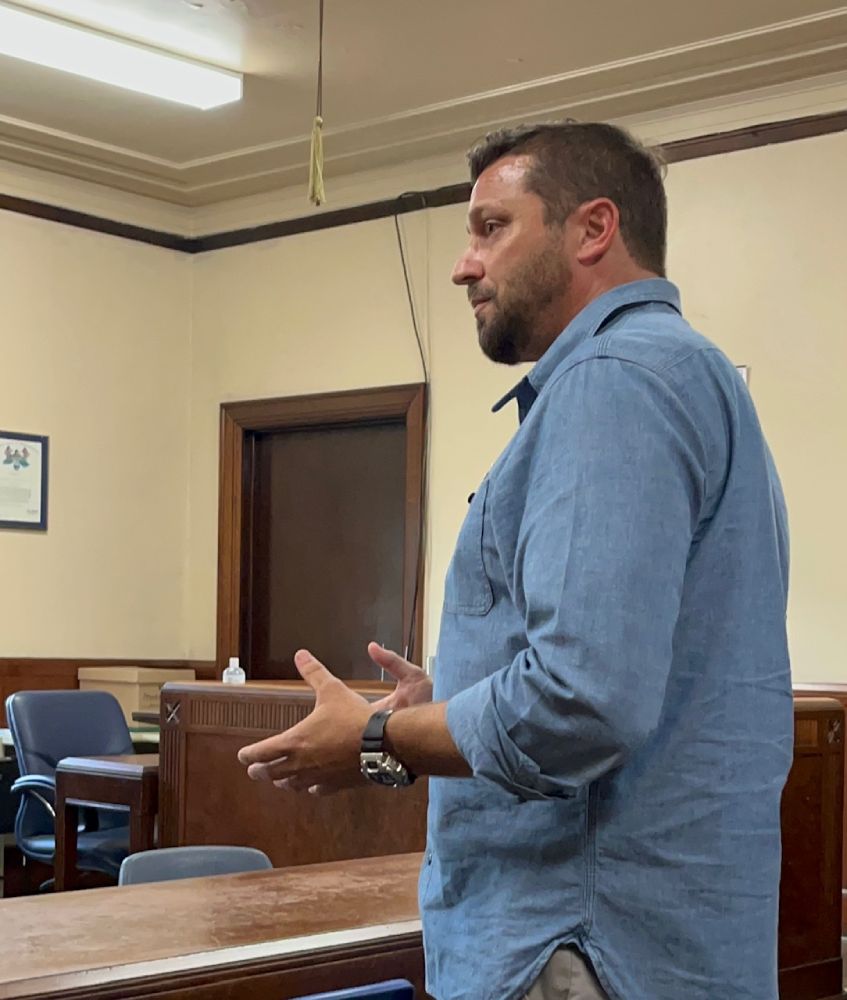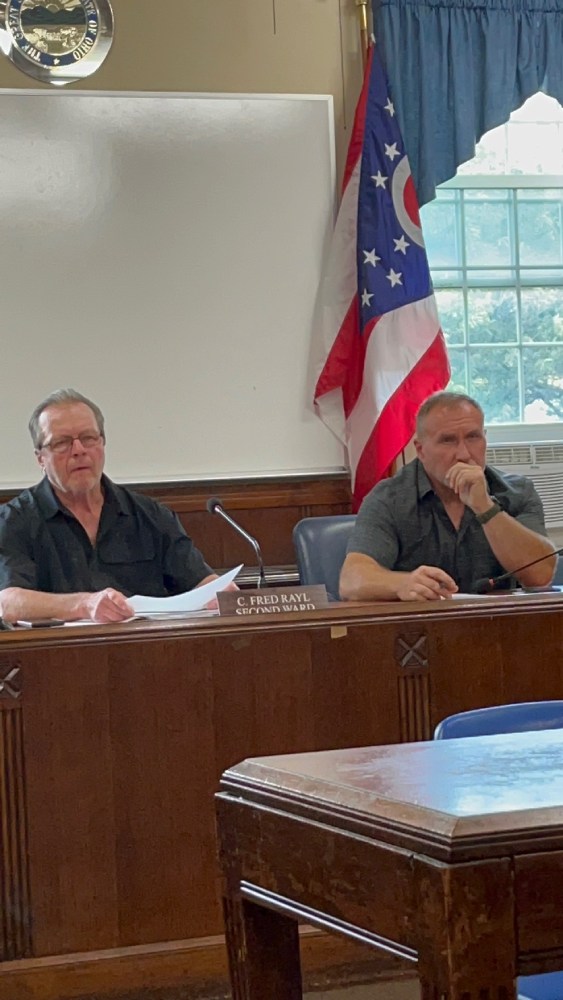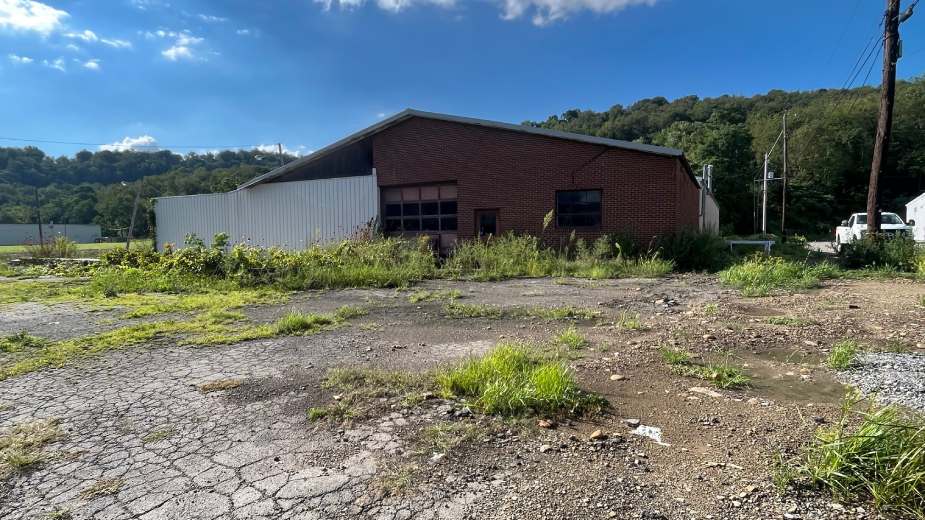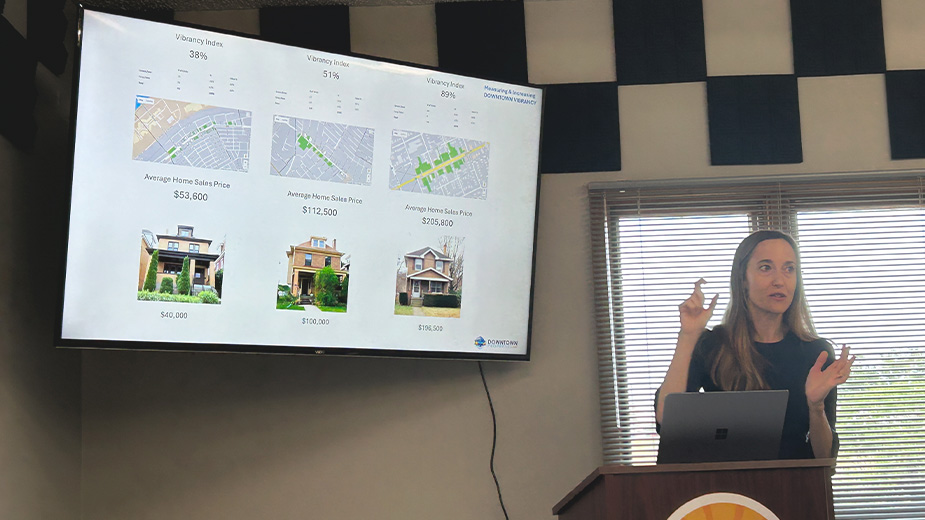Solar Presentation Considered by East Liverpool Officials
EAST LIVERPOOL, Ohio — Officials are considering the benefits of turning to solar power for city operations following a presentation Tuesday before the City Council Planning and Expansion Committee by representatives of an Arizona-based solar company.
Representatives of the Scout Solar firm who addressed the committee are from the East Liverpool area: incentives advisers Lance Frank, son of the late Municipal Court Judge Dominic Frank, and Matt Brophey, son of retired St. Clair Township Police Sgt. Steve Brophey.
Frank said he initially started putting together a plan for the city while his father was working toward purchasing the Review building on Fourth Street for use as the Municipal Court, but his father died in January.
An attempt to offer the proposal in February fell through because of supply chain problems, causing “everything to go through the roof and we couldn’t do it,” Frank said.
Since then, some new incentives have opened up and the idea is now more economically feasible, Frank told the committee and other council members in attendance. Currently, the city is paying American Electric Power 10.5 cents per kilowatt hour which would decrease to 10.3 cents with the solar power system in place, which Frank admitted “doesn’t seem like a big savings,” but said it is when broken down.

In a separate report provided by Brophey on the city water treatment plant, which experiences the highest power usage among city buildings, it was noted the average savings per year would be $26,858 or a total savings of $671,464 over the 25-year life of the contract with Scout Solar.
There would be flexibility in regard to where solar panels can be placed. Frank advised the panels have an average useful life of more than 35 years. Once the solar panels are installed and the city moves to that method of power, Scout Solar becomes the provider and the city purchases only the power it uses, Frank said.
It was explained the East Liverpool area experiences an average of 1,160 to 1,260 hours of sun per year and that, during the day, the city would actually produce much more energy than its needed for its use.
Simply put, the city’s extra energy would revert to the AEP grid for distribution to other residential and commercial customers, and then, during nighttime hours, the city would use the energy with which it had been credited.
Frank emphasized that, should the solar power system go down, Scout Solar contracts locally for repairs and the city would revert to AEP power until the problems are resolved.
Asked by Councilman Fred Rayl if the proposed system can provide all the city’s electrical needs, Frank said, “It will cover the majority of it. There will be some fluctuations. Some years you may use more power. You’re never actually disconnected from the grid. So anything you’re not covering with the solar system, you’d buy off AEP at the same rate you’re currently paying. No matter what, we can’t take anyone off the grid. You always have to remain connected.”

At the end of the 25-year contract, the city has several options, including continuing as-is with Scout Solar; or ending the contract, at which time Scout Solar would remove all fixtures and return city property to its original state.
Explaining the company is able to offer this contract due to incentives, Frank said the Clean Energy Act gives 30% tax credit which is then sold to institutional level investment companies which can invest in solar projects.
“At the end of the [contract] term, we can donate to you; we get the full retail value we’re able to sell that tax credit for. That’s more than likely what will happen,” Frank said.
Discussion ensued about where the solar panels might be installed, including a site in East End discussed at a finance committee meeting before the planning and expansion meeting.
During that earlier meeting, members agreed to table action on the possible purchase of property on Pennsylvania Avenue owned by the Mangano family which once housed a car dealership.
Service Safety Director David Dawson said after the meeting plans call for buying the property, which consists of about seven acres of land and a large building, to serve as the city “Car Barn,” to house the street and refuse/recycling departments.
The existing barn is located just down the street but officials have been discussing the need to vacate it for several years due to its deterioration.
Dawson said the matter was tabled since he is still negotiating a sale price with the owners but said having the existing structure on the property would be “very helpful” for what is needed to house equipment,.
The Mangano family has been “very helpful” in discussing the property, according to Dawson, who said after he has another meeting with the owners, a special finance meeting will be called.
Planning and Expansion Chairman Tom Beagle also adjourned his committee meeting with no recommendation to council about the solar power proposal, with members saying they first would like some feedback from other municipalities served by Scout Solar.
Another meeting on the topic will be held at 3:30 p.m. Sept. 27 in council chambers.
Pictured at top: This former car dealership in the East End of East Liverpool is being considered as the new Car Barn and possibly as the location for solar panels, if a deal for its purchase is reached.
Copyright 2024 The Business Journal, Youngstown, Ohio.



